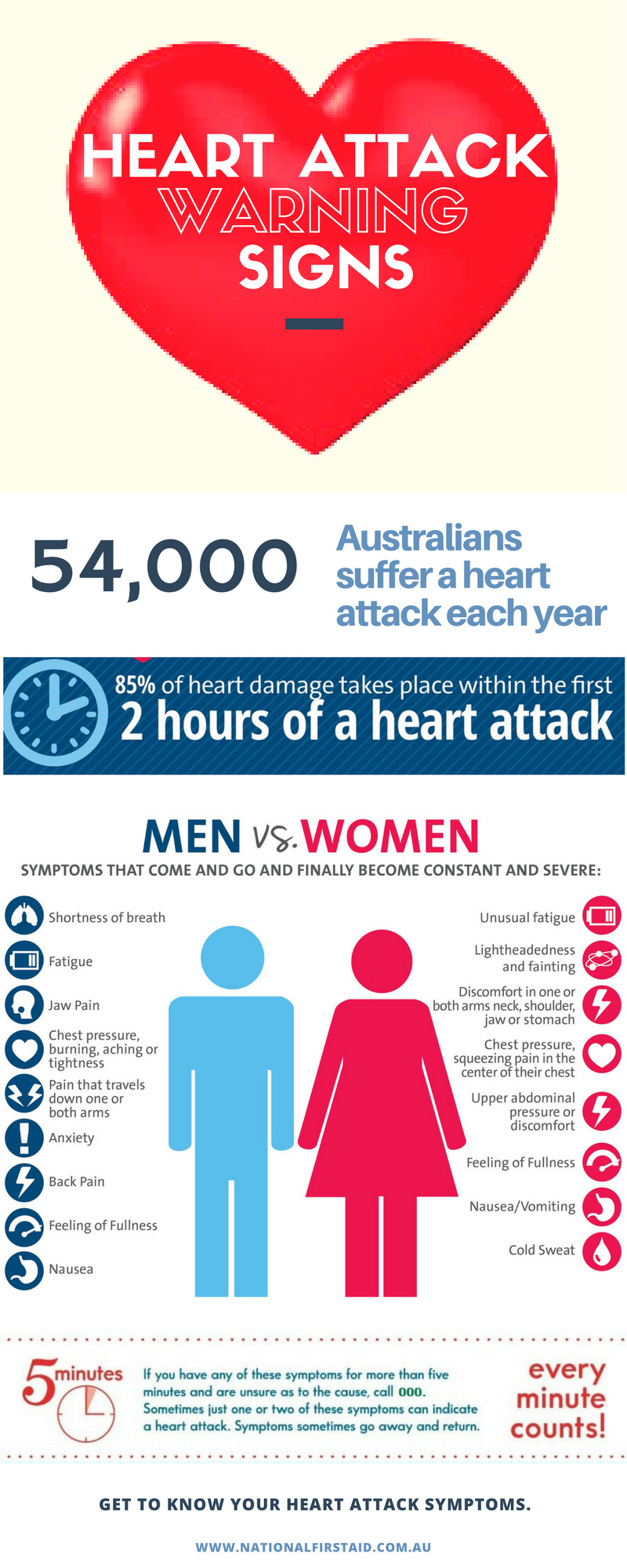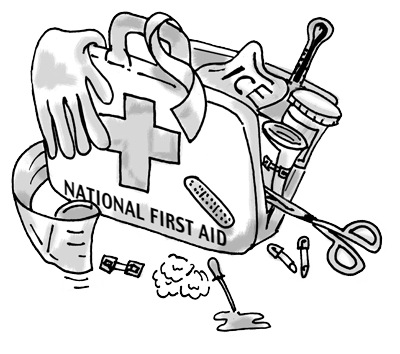Heart Attack Warning Signs
Each year, around 54,000 Australians suffer a heart attack. This equates to one heart attack every 10 minutes (according to Australian Institute of Health and Welfare 2015. Australian hospital statistics 2014–15. Health services series no. 54. Cat. no. HSE 145. Canberra: AIHW)
In 2016, an average of 22 Australians died from a heart attack each day, this is equivalent to one death from a heart attack every 66 minutes (according to Australian Bureau of Statistics 2017, Causes of Death 2016, ABS cat. no. 3303.0, September)
Will you recognise your heart attack?
Although chest pain or discomfort are common symptoms of a heart attack, some people will not experience chest pain at all, while others will experience only mild chest pain or discomfort. Others may experience 1 symptom, while some experience a combination.
These are the most common warning signs of a heart attack. You may have just one of these symptoms, or a combination.
Warning Signs – Men
Shortness of breath
Fatigue
Jaw pain
Chest pressure, burning, aching or tightness
Pain that travels down one or both arms
Back pain
Feeling of fullness
Nausea
Warning Signs – Women
Unusual fatigue
Light-headedness and fainting
Discomfort in one or both arms, neck, shoulder, jaw or stomach
Chest pressure, squeezing pain in the centre of their chest
Upper abdominal pressure or discomfort
Feeling of fullness
Nausea / vomiting
Cold sweat
If you experience the warning signs of heart attack for 10 minutes, if they are severe or get progressively worse, call 000 immediately and ask for an ambulance.
What to do
Call 000 and ask for an ambulance
Reassure and have the patient rest in a comfortable position, preferably sitting and leaning forward and loosen any tight clothing.
Reassure and closely monitor patient for response and normal breathing while waiting for an ambulance.
Be prepared to commence resuscitation.




